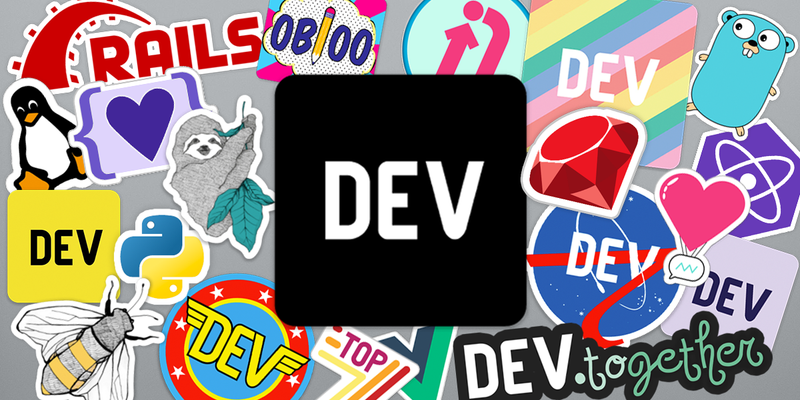Hey gang 👋
Making your first coding contribution can seem SCARY. 🧟♀️
At Quine, we are super happy to have recently hired Lorenzo, a fantastic product intern!
His first task was:
- after signing up and heading to "Contribute", use our free open-source search tool to solve your first open-source issue.
Here is his story of becoming a first-time coding contributor accompanied by his insights on how you can do the same 🫶:
1. 🎙️ Lorenzo, what is the story behind your first coding contribution?
The journey started when I first discovered Quine and got introduced to the open-source (OS) world. I initially did some courses on how to use GitHub and how projects are usually laid out. There were some videos on Youtube as well as DataCamp that helped me do this for free.
Once I had enough information, I looked for a repository (also called repo) to which I could contribute. This is where I found quine.sh extremely useful as browsing repos on GitHub can be a chore. However, here I could filter by my language and topic of preference which was very useful.
Once I found a repo I wanted to contribute to, I went to see what good starter issues existed. Since I learned to read documentations in school, an excellent first contribution was fixing aspects of a documentation (if you want to learn the mechanics on how to contribute to documentation click here). Once I made my contribution and it was accepted, I still missed a big part of the experience: making a coding contribution.
In this, I continued to use Quine to look for repos that had more my level of skill and that were more approachable. Once I found an issue I thought I could do, I had to understand how contributions were formatted and done in that repo.
This took some time but it was a needed part of the journey. After feeling confident enough in it, I sent over my contribution. There was some back and forth with the project owner (that are called maintainers on GitHub), which ultimately led to my contribution being accepted. 🎉
2.⚔️ Do you think open-source is only for experienced coders?
Open source is for anyone who wants to be part of a project and a community. Whether you are a veteran programmer or a beginner, there is always a place, repo and issue for you. If you want to be part of open-source, you want to be part of a meaningful project. On a side note, I do find that the beauty of it comes when a valuable project brings people from all over the world together.🌟
3. ❌ What was your biggest mistake?
My biggest mistake was waiting for maintainers to respond and not utilising that time to contribute to more repos. I wholeheartedly recommend spending the downtime solving new issues.
Indeed, it is possible that sometimes maintainers do not answer back to you. In these cases it is good to have worked on other projects. Also, to anticipate for this, you can find the response rate of maintainers on quine before going for a specific issue. This will help you in your decision process of which projects you want to commit your time on.
4. 🕰️ If you could return in time, how would you do it again?
I would focus on making as many pull requests (PRs) as I could. A PR is when a developer sends a contribution to an open-source project. It is then on the project owner to either accept or reject the PR/contribution.
This is the best way a beginner can improve. When making many PRs, you can quickly enhance and gather knowledge on how each repo work - especially since the project maintainers can guide you in the process.
5. 🏋️♀️ What are the top 3 tips you would give to somebody who never contributed?
In no particular order:
1. Find a repo that you feel comfortable with. Don't feel intimidated by the big technical projects. The first contribution can often be the hardest because you need help finding a repo or an issue that fits you.
2. Make sure to limit yourself to a single repo or a single issue. Particularly when starting, attempting the most issues gives you the best chance to get a PR merged. You will also find that when PRs don't get merged, you learn a lot of valuable insights into how the repo works and what is needed.
3. Don’t be afraid to fail or ask questions. I failed a couple of times in my journey to make my first contribution. For example, I had to go through a lot of back and forth with maintainers. I also had to Google or StackOverflow a couple of things. Don't think that asking questions is a sign of weakness. It is a strength.
If you are ready to start contributing to other projects, we have compiled a list of projects with easy issues you can start on. Check out the list of projects on quine. sh, and here's a short playlist in case you are blocked. 🚀
If you haven't yet, you could join our discord server if you need any help or have any questions. 🫶






Top comments (17)
Congrats, dude!
Thanks for the kind comment - your turn now ;)
I've already made my own OSS contributions lol.
Ahhh very nice 💪
Amazing brother!
Thanks a lot for this James!
That’s awesome! Congrats on making your first contribution to open source, especially as a beginner. 🚀 It’s definitely a big step, and I know it can feel overwhelming at first. But it’s also so rewarding, right? Getting to work on real-world projects and knowing your code is making a difference is such a great feeling! ragdoll hit
Thank you! It truly is rewarding to contribute. Excited to learn and grow while collaborating with others in open source! tag game
Making my first coding contribution as a complete beginner was both exhilarating and humbling. I started by diving into an open-source project that interested me, spending hours getting familiar with its codebase and understanding its purpose. I tackled a small, manageable issue updating documentation and fixing a minor bug. The process involved reading through guidelines, experimenting with code, and testing changes. When my SSS Contribution was finally merged, I felt a profound sense of accomplishment. It was the start of my journey into the coding world, marked by learning, collaboration, and the thrill of making a meaningful contribution.
Join the eggy car craze and discover a world where every turn counts! This addictive game challenges you to balance your egg while navigating through various terrains. With vibrant graphics and exciting gameplay, Eggy Car is perfect for players of all ages. Jump in now!
Making your first coding contribution as a complete beginner is a huge milestone—just like finding the perfect bodhrán for sale, it takes curiosity, persistence, and the right tools to get started.
That first coding contribution is a huge milestone—like picking your first pair of oval glasses UK, it's all about finding the right fit and gaining confidence in your style (or code)!
Congrats Lorenzo! Super inspiring to see your first coding contribution.
I'm planning to start with some beginner-friendly issues, especially documentation or color rush.
Hope to learn a lot by contributing and interacting with maintainers.
I'd love to support projects in education or community impact.
Congrats Lorenzo! Super inspiring to see your first coding contribution.
I'm planning to start with some beginner-friendly issues, especially documentation or color rush.
Hope to learn a lot by contributing and interacting with maintainers.
I'd love to support projects in education or community impact.
Carry on all the things you do. a little to the left
Some comments may only be visible to logged-in visitors. Sign in to view all comments.